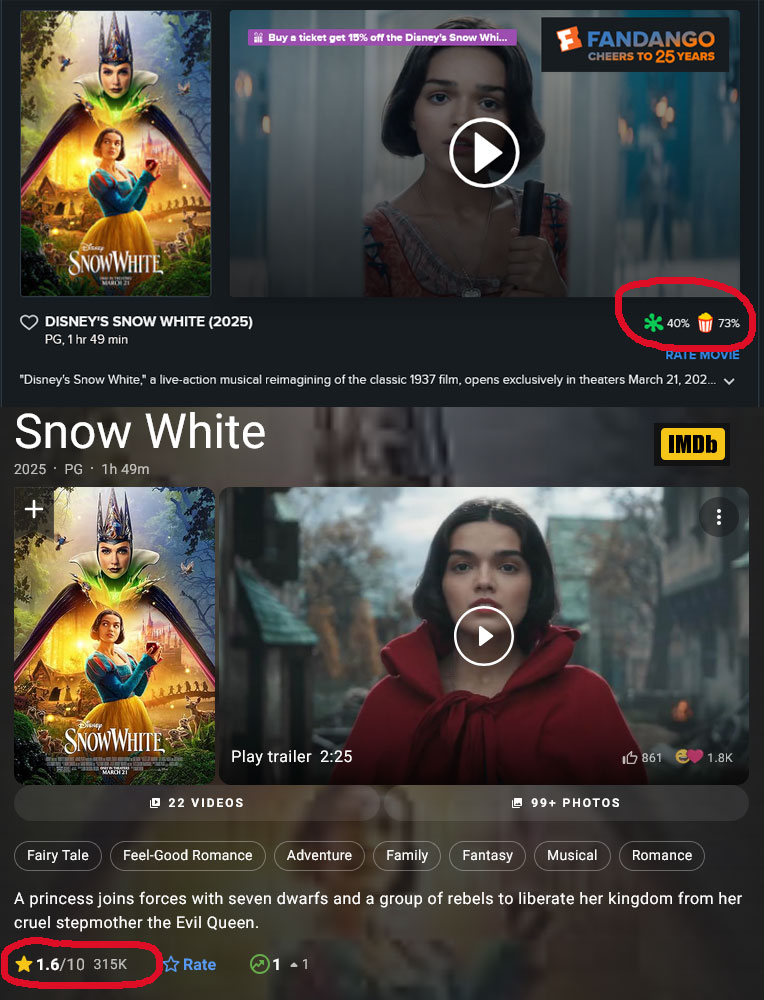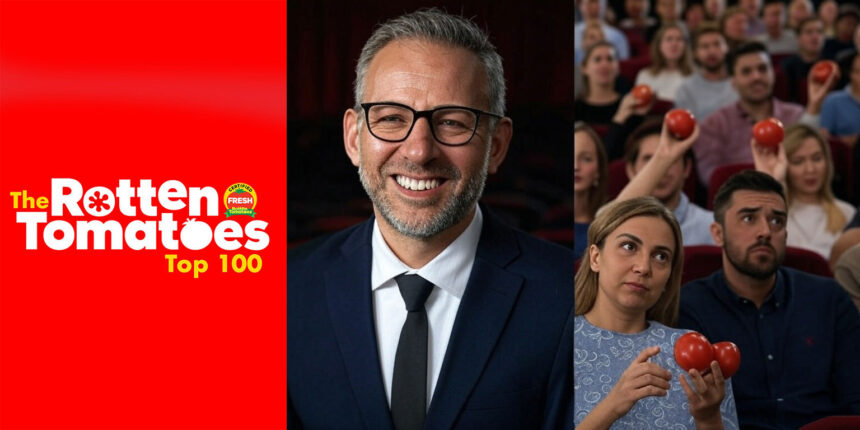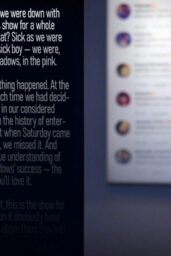I used to think Rotten Tomatoes mattered. Until I saw how the sauce gets made.
I'll admit it—I used to check Rotten Tomatoes religiously. Like a priest with a smartphone. Before I bought a ticket, streamed a movie, or dared recommend something to a friend, I peeked at that sacred percentage. Above 80? “Must-watch.” Below 60? “I'll pass.”
But then I stumbled across how Rotten Tomatoes really calculates its scores. And folks, it's not just a tomato—it's a whole salad of statistical deception, marketing manipulation, and binary thinking disguised as consensus. Spoiler alert: You've been lied to. Or, at the very least, dramatically misled.
The Big Lie: That Number Isn't an Average—It's a Vote Count
Here's the uncomfortable truth: the Tomatometer isn't a measure of how good a movie is. It's a measure of how many critics gave it a thumbs-up.
Let's say 100 critics review a film. If 75 of them rate it just slightly above average—maybe 6/10 or 3 out of 5 stars—it gets a 75% “Fresh” score. Even if no one loved it. Even if everyone thought, “Meh, it was fine.” Meanwhile, another movie could earn 40% because only 40 critics gave it a pass. But maybe those critics loved it. Called it “visionary,” “bold,” “a must-see.” The other 60? Maybe they hated it for being too weird. Too daring. Too…different.
So Rotten Tomatoes doesn't measure intensity. It measures agreement. And that's a dangerous game.
It's Like a High School Election—But Everyone Votes “Sorta”
Imagine a student running for class president. Half the school loves her. Thinks she's amazing. The other half loathes her. Calls her a narcissist with glitter pens. She gets 50%.
Now imagine another student. Quiet, boring, neutral. Nobody loves him. But nobody hates him either. He's everyone's third choice. He gets 80%.
According to Rotten Tomatoes logic, he wins. Not because he's better. But because more people mildly approve. That's the Tomatometer in a nutshell—popularity without passion.
Studios Game the System—And Critics Are Pawns
Let's get even more cynical. Studios know how the system works. They design release strategies around it. They'll hold early screenings for friendly critics, embargo the rest, and cherry-pick blurbs. Why? Because a strong opening weekend lives and dies by that Rotten score.
Some studios even delay reviews for certain films to avoid early “Rotten” labels. Others flood review sites with influencer takes before the real critics weigh in. (Yes, “influencer critic” is a thing now. Shudder.)
It's not a conspiracy—it's just marketing. But it works. A 2023 USC study showed that movies with a 90%+ Tomatometer score saw up to 23% higher box office earnings compared to similar films rated below 60%. That's not a mild effect. That's millions of dollars. That's careers.
So Who's Behind the Curtain? Follow the Corporate Trail
Rotten Tomatoes is owned by Fandango, the same company that sells you tickets. Conflict of interest much? It's like Yelp being owned by Applebee's.
And as of recent years, they've gotten even cozier with Hollywood. With studio partnerships, curated “verified” ratings, and critic programs designed to boost “positive voices,” the platform is less watchdog, more lapdog.
Critical Thinking—Not Critical Consensus—Is What We Need
So what's the takeaway? Don't trust the number. Not entirely. At best, it's a vague indicator of critical mood. At worst, it's a tool for marketing spin.
Instead:
- Read full reviews. Not just the blurbs. Find critics you vibe with.
- Look at Metacritic too. It averages scores, not binary choices.
- Support weird films. The ones that divide people. The ones that take risks.
Because sometimes, the most interesting movies are the ones that leave people arguing in the parking lot.
Would You Risk Watching a 40% Film? Comment Below.
You might just find your next favorite.

FAQs
What does the Rotten Tomatoes score actually mean?
It represents the percentage of critics who gave the film a “positive” review—not how good those reviews were.
Is a 100% score a guarantee I'll love it?
Not at all. It might just mean everyone thought it was “fine” but no one was blown away.
How does Rotten Tomatoes choose critics?
Critics apply and are vetted based on reach, consistency, and professionalism—but influencer critics are increasingly being included.
Is the Audience Score more reliable?
Sometimes. But it's also easier to manipulate with review bombing or astroturfing campaigns.
What's the best way to evaluate a film?
Read multiple reviews, follow critics you trust, and trust your gut.
Why do some great films have low scores?
Because they're divisive. And divisiveness tanks the binary Tomatometer.
And here's a question worth asking: Why do so few people discuss films anymore? Why do most just cast a vote—thumbs up or thumbs down—like it's a courtroom verdict rather than an art form? Independent platforms like filmofilia.com, which operate outside corporate influence, still offer space for open, nuanced conversation. These are the corners of the Internet where film is treated not as content, but as culture. And yet, even there, reader engagement has shifted. The appetite for gray areas—the messy, contradictory, soul-stirring parts of cinema—has been replaced by a craving for quick takes. Fresh or Rotten. Yes or No. But storytelling has never been black and white. So why is our response to it becoming so binary?












